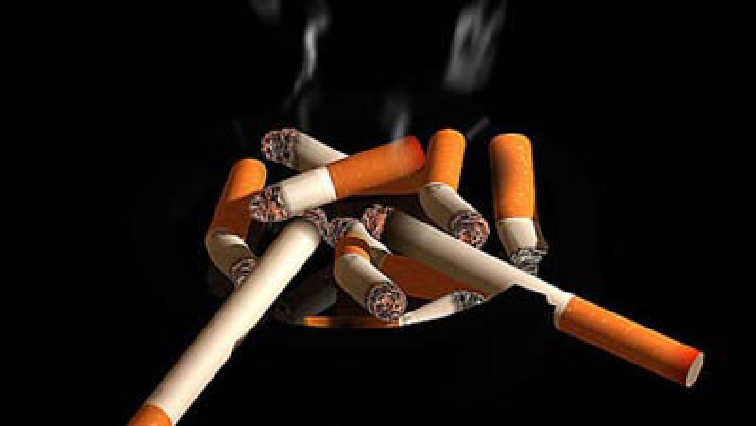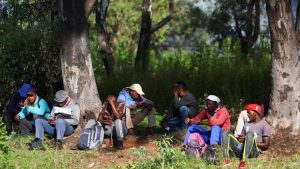President Cyril Ramaphosa has conceded that government made a mistake in the way it communicated the collective decision over the cigarette ban. The President was responding to questions from the South African National Editors Forum (Sanef) via video link.
A few days after the President lifted the ban on cigarettes, the Minister of Cooperative Governance, Nkosazana Dlamini-Zuma, announced the reinstatement of the ban.
President Ramaphosa conceded that he should have been the one to communicate the new decision. He says thousands raised concerns over the lifting of the ban, prompting a change of tack.
“And what we should have done is the president should have been the one to announce it again and give reasons why this was being changed. Now that was not done and we will concede as well, it should have been done because then it created a very unpleasant type of situation where people started saying that the minister was undermining the president. It was a collective decision.”
World No Tobacco Day
As the world marks No Tobacco Day on Sunday, the anti-smoking lobbyists have every reason to celebrate. The outbreak of the novel coronavirus has forced some countries, including South Africa, to implement a temporary ban on smoking to reduce the spread of the disease.
The day is observed by educating people about the harmful effects of tobacco consumption and the urgent need to quit.
In the video below, Dr Zweli Mkhize holds a virtual meeting on tobacco control in South Africa:
The World Health Organisation (WHO) focuses on protecting youth from industry manipulation and preventing them from tobacco and nicotine use.
Tobacco use is responsible for more than 8 million deaths each year globally. It is a known risk factor for many respiratory infections and increases the severity of lung diseases.
2020’s World No Tobacco Day campaign focuses on protecting children and young people from exploitation by the tobacco and related industry.
Dr Joe Phaahla, the Deputy Minister of Health, says government has the responsibility to educate young people about the dangers of using tobacco.
“Tobacco industry is focusing on young people and as government, we have the responsibility to equip our young people about the dangers of using tobacco and nicotine products; including tactics used by the industry to lure them into getting into the habit.”
Meanwhile, South Africans have begged the government to relax the ban on tobacco products.
Change.org activist Bev Maclean says smoking is a freedom of choice.
“Please lift the ban. It’s our freedom of choice. If I want to stop smoking it’s my choice, not anybody else’s. Allow us to continue in this crisis a little bit more relaxed than we are now.”
This while the British American Tobacco SA (Batsa) resumes its court challenge against the tobacco ban and is being supported by manufacturers, traders and some consumer bodies. The organisation’s Head of External Affairs, Johnny Moloto, says they have made every effort to engage constructively with government.
“Batsa has made every effort to engage constructively with government since the ban came into force, including making detailed submissions along with our interested parties to various ministers as well as to the presidency. To date, we have received no formal response from the government and Batsa has concluded, therefore, that the consultation that the government has taken so far has excluded us and left us with no option, but to pursue this option.”
In the video below, the tobacco industry takes government to court in the fight against cigarettes ban:
Tobacco products in Africa
More than 30 African countries have banned the use of tobacco products, even though the industry challenges government with court orders in relaxing the ban.
The WHO Africa resident representative Dr Owen Kaluwa says tobacco is the cause of a lot of deaths in Africa annually.
“Every year, 146 000 Africans die from tobacco-related diseases. 36 African countries have banned tobacco use in public spaces in order to protect its citizens, to weaken these measures to ban tobacco use.”
Even during a global pandemic, tobacco has a grip on young people that limit their ability to fight the virus. The WHO calls on all sectors to help stop marketing tactics of tobacco and related industries that prey on children and young people.
In the video below, the world observes No Tobacco Day:






